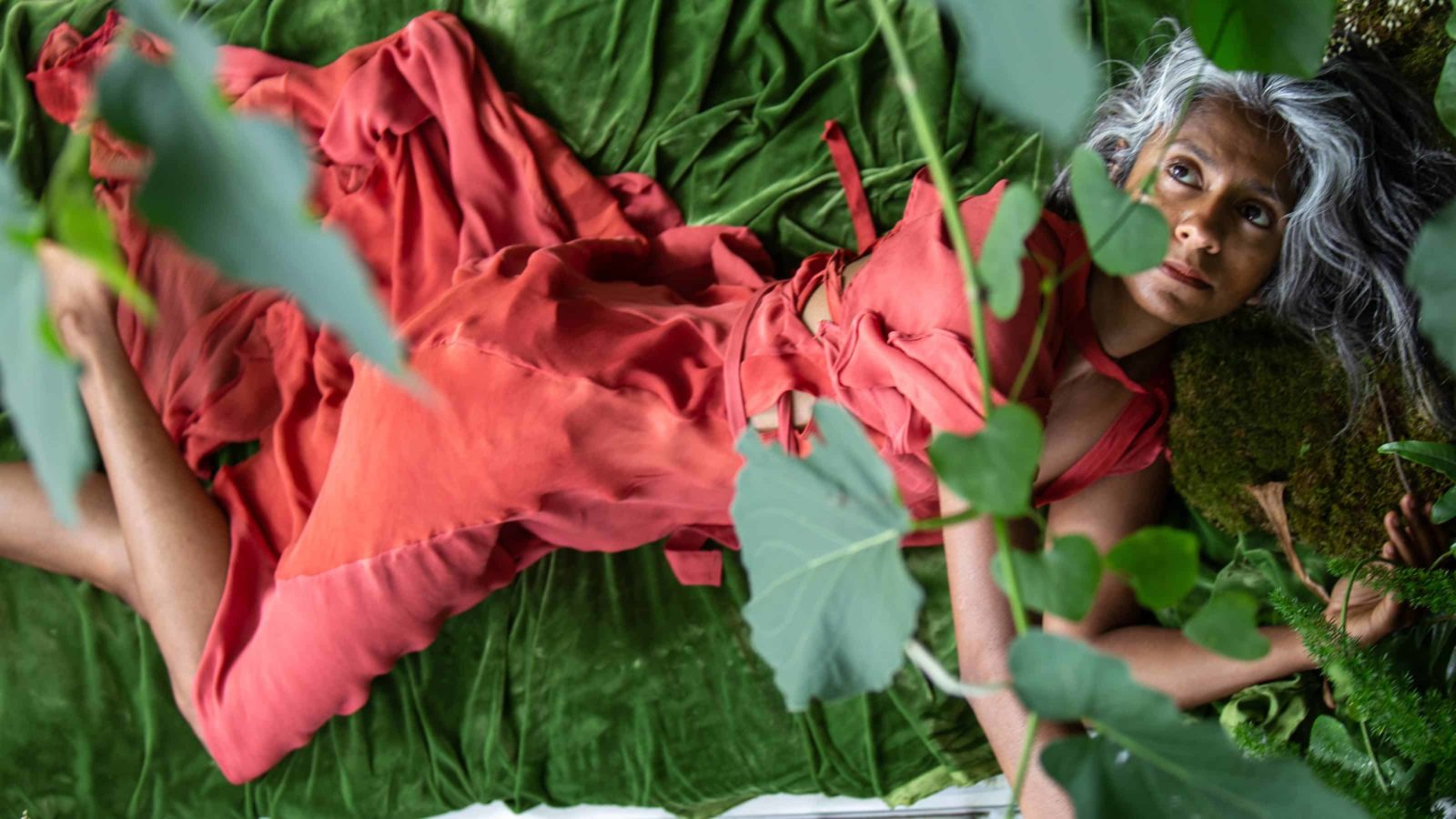The room is full of plants, densely cascading green fronds and overlapping leaves and fowers floating in a wide clay bowl, and Pooja Prema stretches out with stems around her. She is lying quietly, relaxed, as though she is almost asleep, daydreaming and at peace for a moment, with the light playing on her head and shoulders.
She is a theater artist and performer in Sustenance, one of 21 rooms in a house that has become, for a few days, an immersive work of art, a community of artists from across the country, and a walk through a woman’s body and a woman’s life.
In August, Prema gathered some 68 artists to create Rites of Passage: 20/20 Vision, and on November 5 she will return in a virtual tour and conversation with the makers.
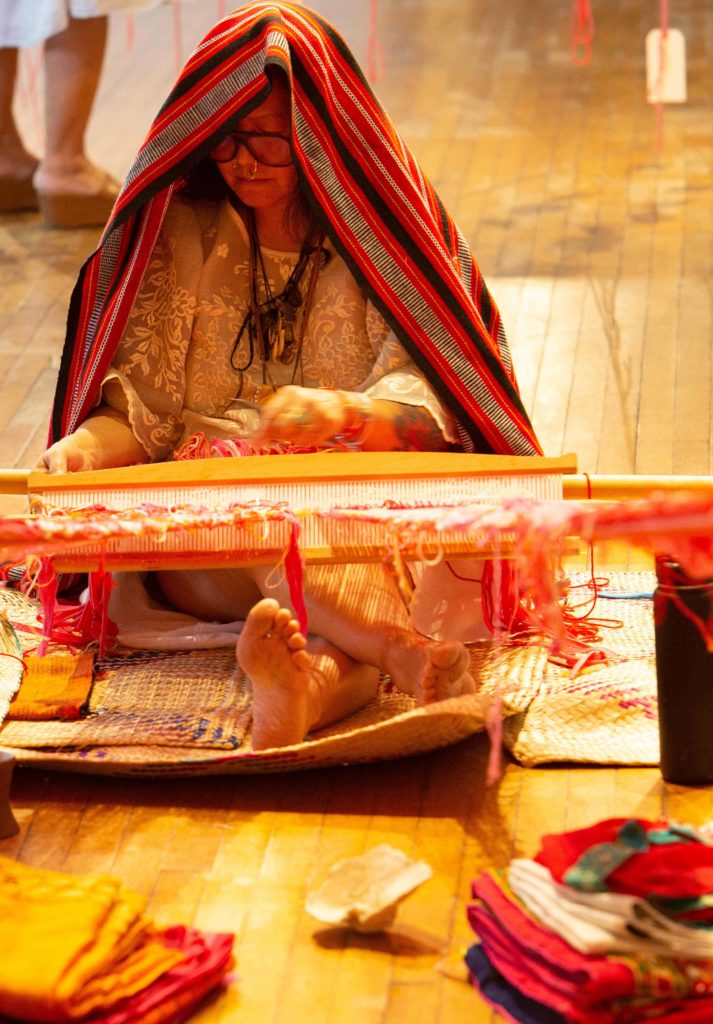
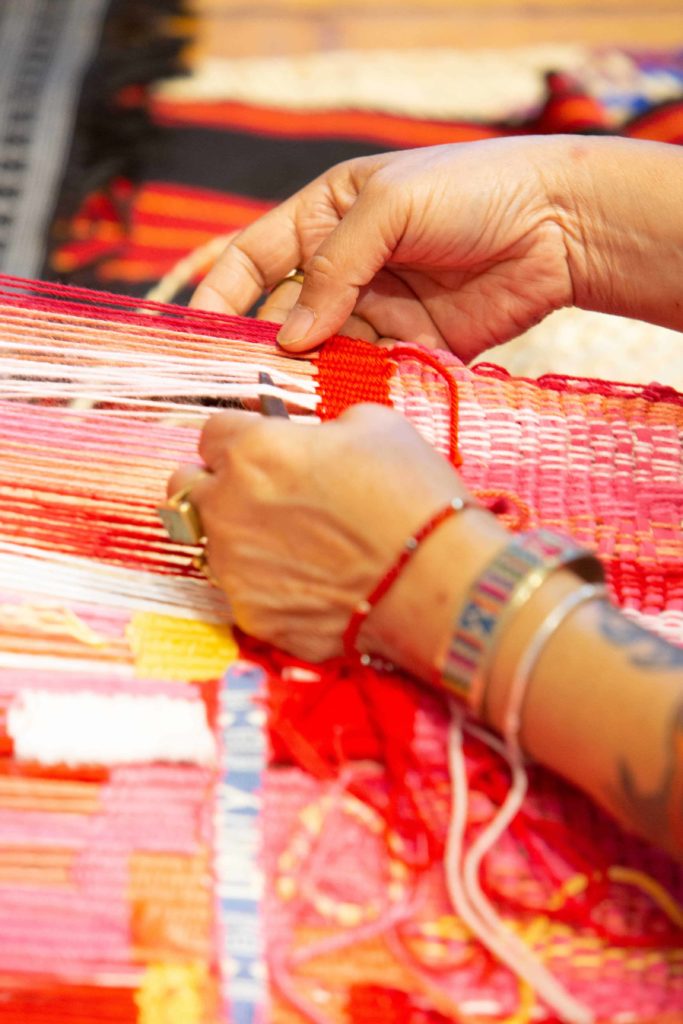
It has taken at least three years to plan and build, as Prema has gathered a community of artists to build it. But the roots of this performance go back farther, she said — much farther. She was working on a play in Housatonic in 2012, when she held the first conversation with a fellow artist that planted the seed for it … and she was reading “A Water in the Spirit” by the writer Malidoma Somé, a widely known writer and Dagara elder from Burkina Faso, West Africa.
He talked about the communal structure of a village, she said — a group of people who live closely together over time — and the ways they help each other to mark changes, in a season, in a year, in a lifespan. He gave her a sense of the power of initiation, the act of a group helping a young person to come into adulthood, so they do not have to go through a vast and difficult change alone.
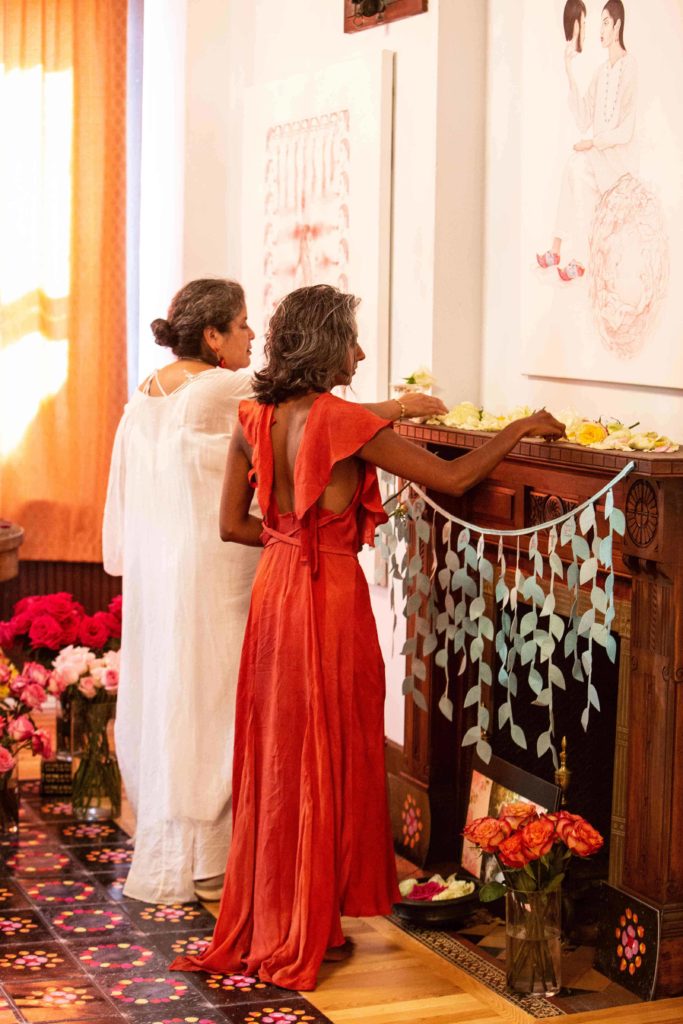
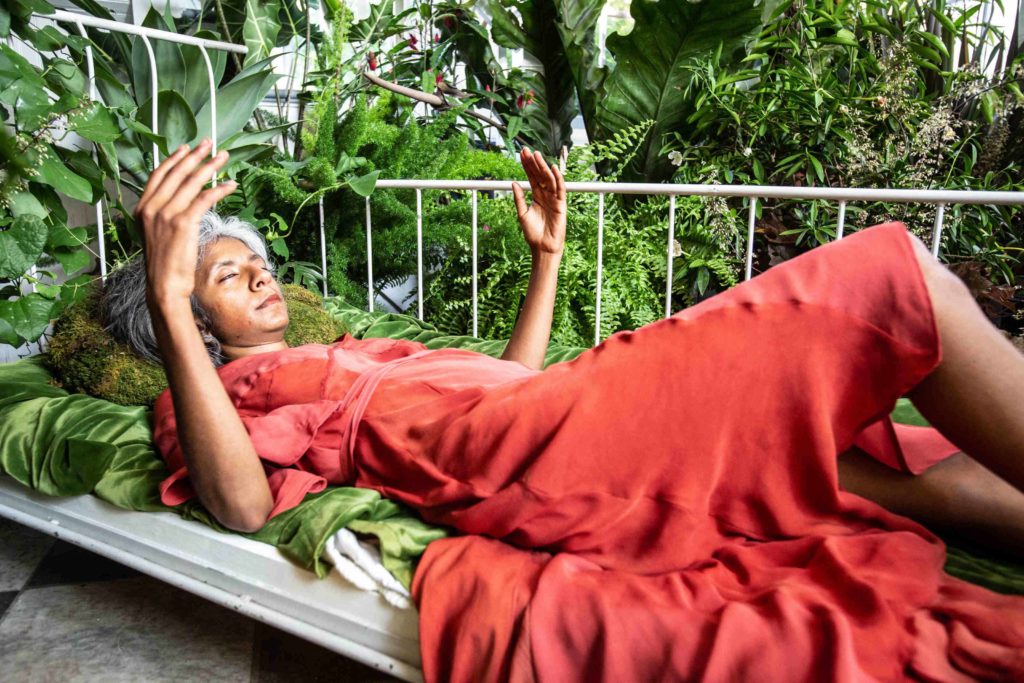
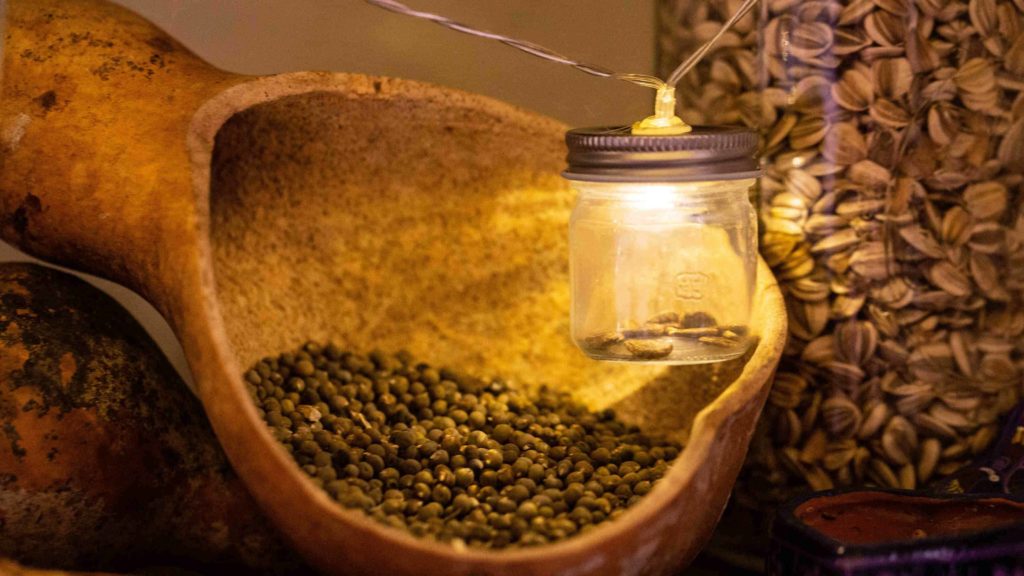
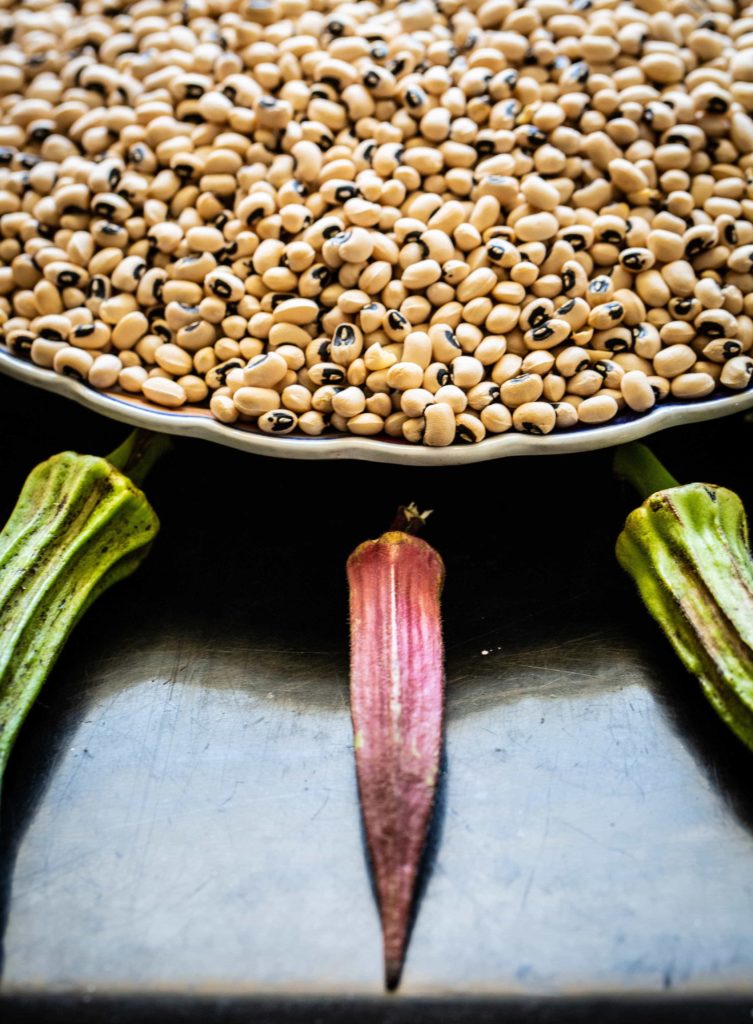
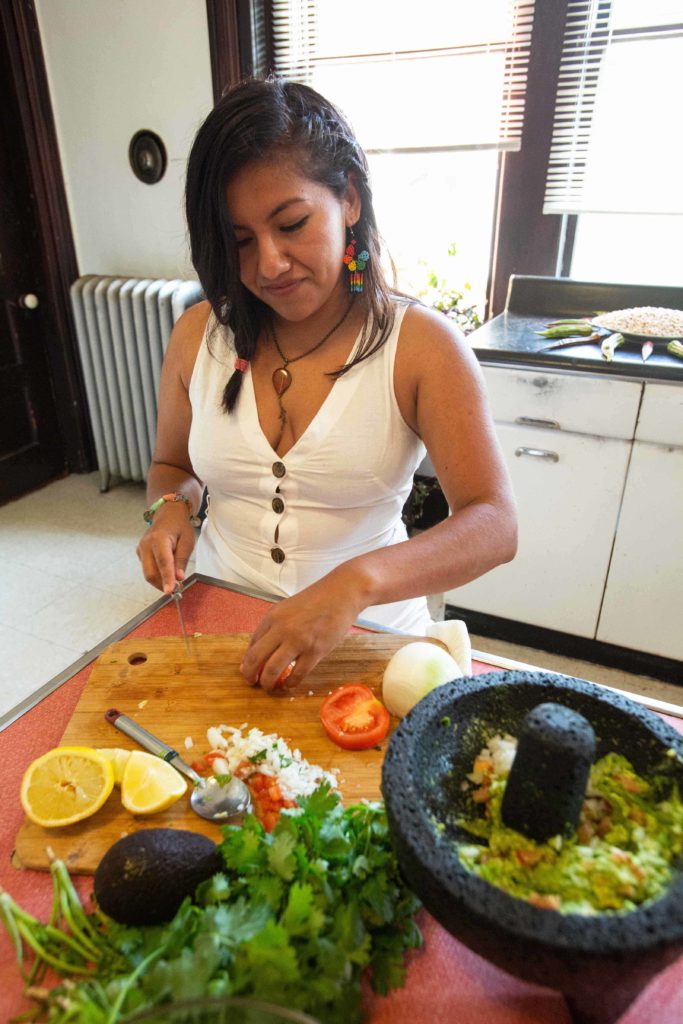
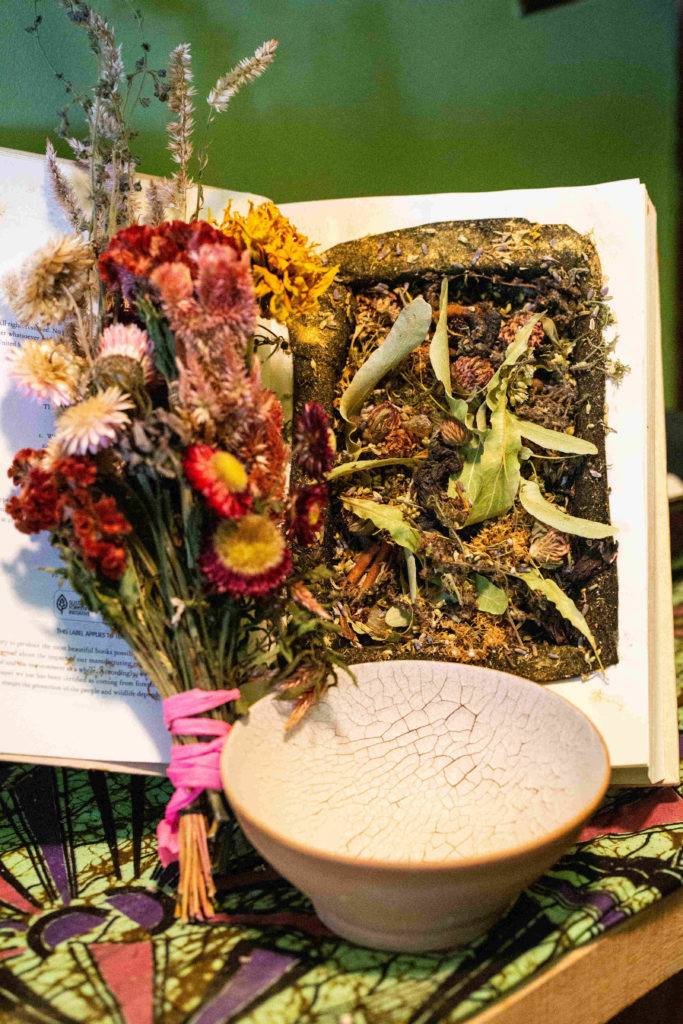
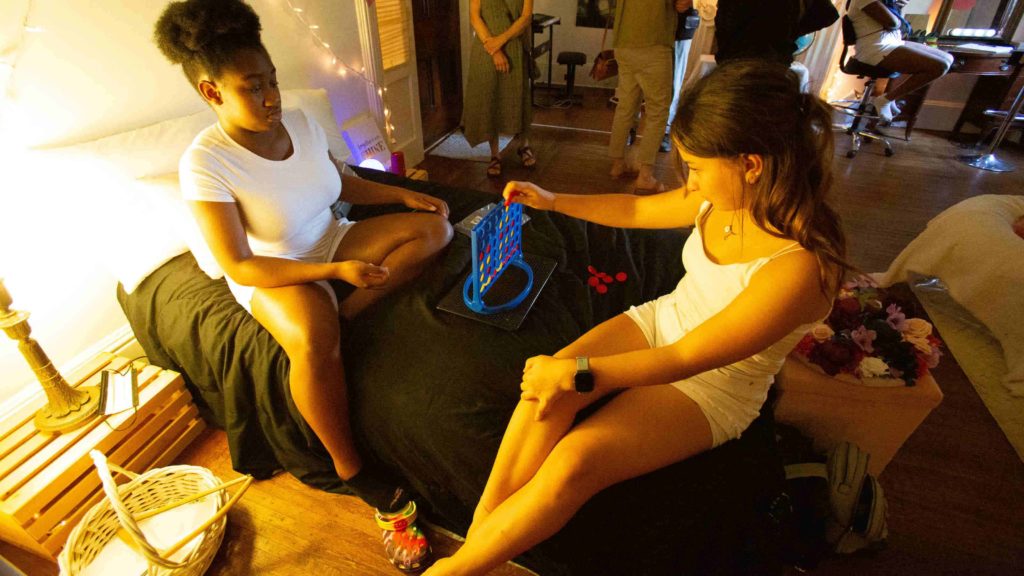
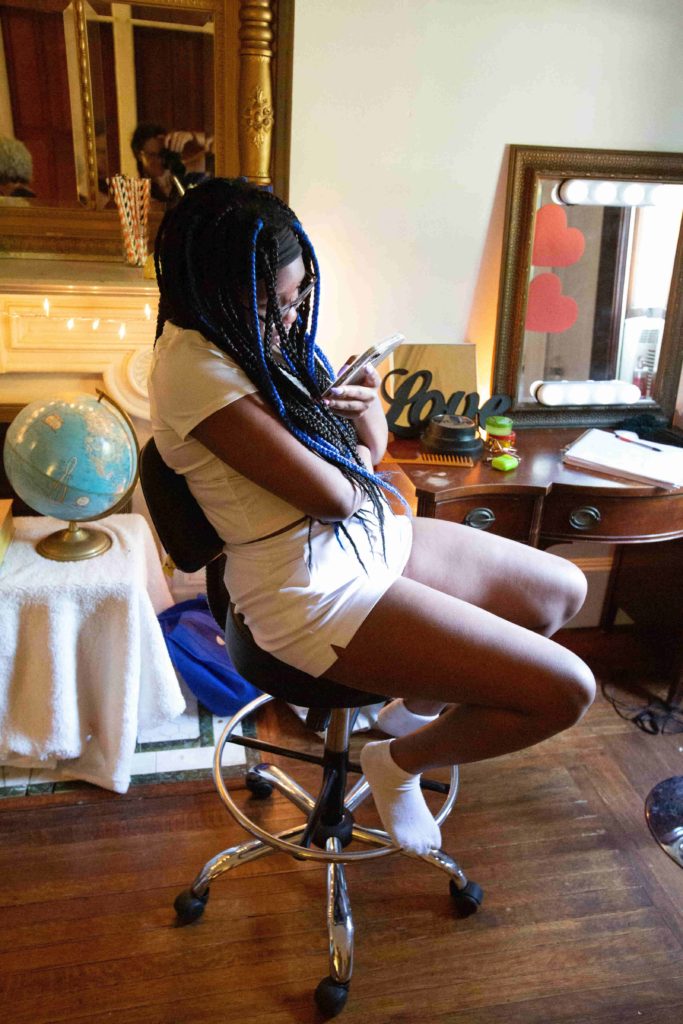
She has lived in the Berkshires for many years, and she has missed this feeling of community.
“I come from a culture, in Kerala, in Southern India, where the foundation for our life was seasonal ritual, harvest and planting,” she said.
They would weave daily and yearly activities with cultural forms, she said, holding the sense of a time of year, or a time of life, in music and movement, touch and color. Colonization and globalization have tried to dissolve those ties. Those practices have weakened over the last decades, she said, but they still exist.
“It’s why I started making theater,” she said — to re-imagine that kind of intention and care in new ways. She would go on to create artwork with a sense of intention and connection to ritual and to the land … floating candles down the Green River in a performance in Great Barrington.
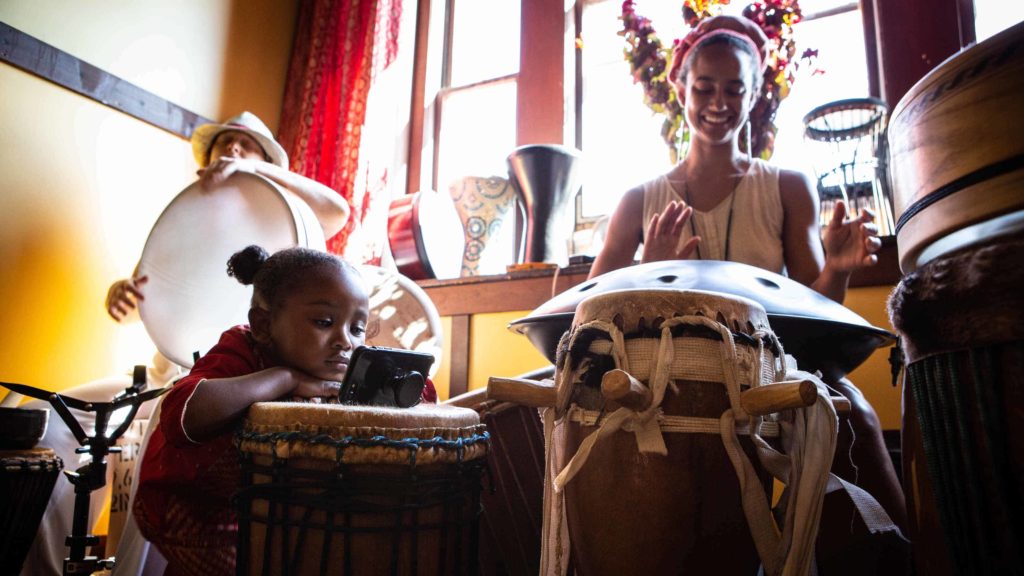
Krista Speroni, Amanda Turk and Carolyn Koebel perform on percussion in Rites of Passage.
Times of transformation
Living here, Prema sees few ways for women to recognize the changes in their adult lives, outside a wedding or a memorial.
“We all need them,” she said.
What does it mean, for a person or a society not to have ways to reckon with times of change or depth — in love, family, work, home, belief and sense of self, birth and death? What does it mean day to day and accross a lifetime?
“If we don’t have places where we are seen, recognized, loved and supported to pass on to the next stage,” she said, “… it means we’re bankrupt … strugging how to integrate these experiences into our lives.”
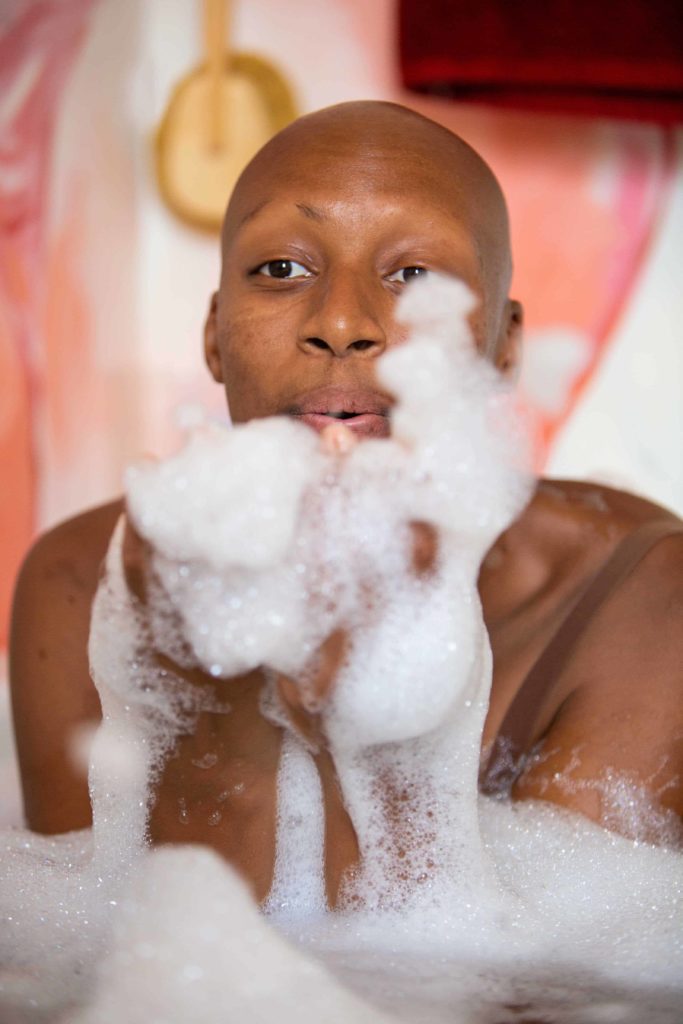
Devyn Harris performs in the Body Room, honoring her body immersed in water, in Rites of Passage.
In modern life, she has felt too often that people and experiences are dismissed.
“We’re told to get over it. That’s life. We’re told it’s melodrama,” she said, quoting Somé: “‘Until these experiences are ritually seen and heard, they will remain dimmed as traumas to cope with.’”
She has gone back to Kerala more than once, she said, and each time she returns here she has felt a sharp contrast
“When I lived in India,” she said, “I’d come back to the States, and it would be so jarring. In India, you would walk into a house and people would say how are you, have you eaten, do you have water? That’s the upbringing and culture I’m coming from. So when someone enters Rites of Passage, I want them to feel welcome.”
A community of healing
She wants to imagine a more humane way of life, she said, a house, a body, a garden, and she and her village of makers imagine new worlds through art, because art is who they are.
She held a smaller performance in 2013 with local artists. They were mostly local women, and mostly white, she said. They would tell her that the performance itself would become a rite of passage for them.
But though she too felt the power of it, she wanted more. The idea of creating Rites of Passage with Women of Color felt radical to her, she said, even four years ago — and when she realized that, she knew she needed to make it happen. She needed the community she imagined.
“To be around women — that’s powerful — a synthesis, a harmony can happen,” she said, and in a group who are all Women of Color, she felt a kind of healing on a cellular level, a deep kindness, a gentleness and familiarity.
“We are inherently kind and in connection with other beings,” she said.
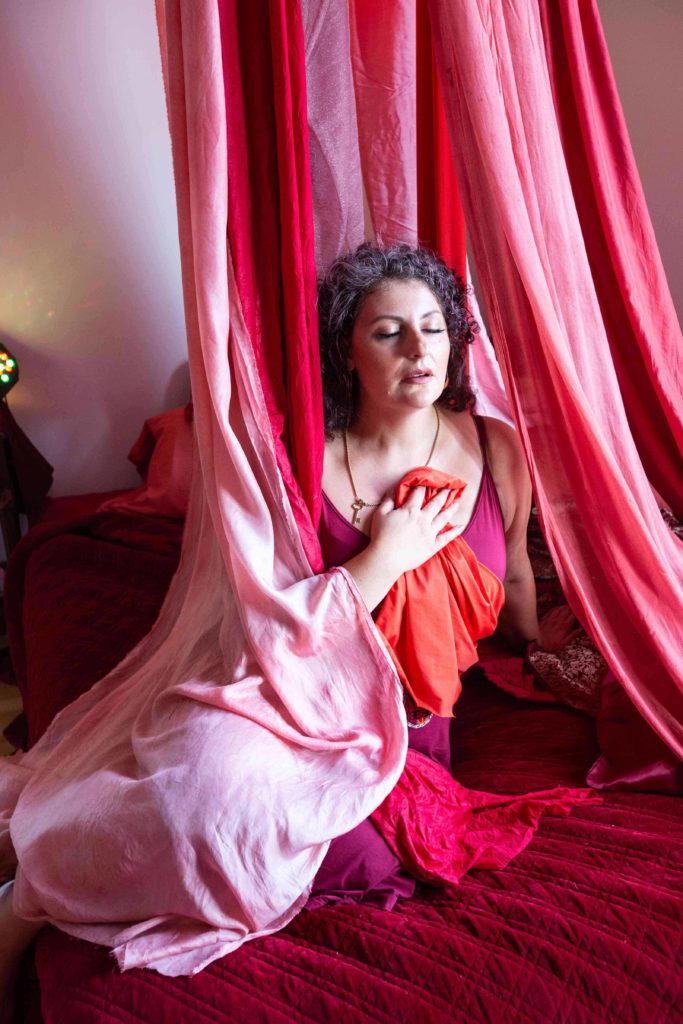
Juliet Olivier performs in No Longer Silent, a room dedicated to healing trauma, in Rites of Passage.
She wanted, not to exclude of anyone, but to welcome in warmly people who have often not felt welcome where they live or work, where they love and raise their children.
“No one feels at home in a colonized world,” she said. “We’re all adrift and rootless. We opened doors for people to feel that momentary, shared possibility …”
As they came together to create the performance space, they held a grief ritual. They needed to, she said, to make the open, intimate space they wanted to form together.
“As Women and People of Color, we’re holding so much grief,” she said. “Displacement, colonization, genocide, patriarchy — we’re holding that in our bodies.”
She feels this as a human need, for anyone.
“The first step is to acknowledge and grieve,” she said. “If we’re going to create a future for us, we can’t pretend we’re not carrying all of this sadness, and because we did that, you get to walk through that house and feel that joy. Because we were willing to feel at all. That kind of joy only opens up because we become vulnerable.”
And so she called this newest performance 20/20 Vision, to look clear into the past, present and future and ask, where do we go from here.
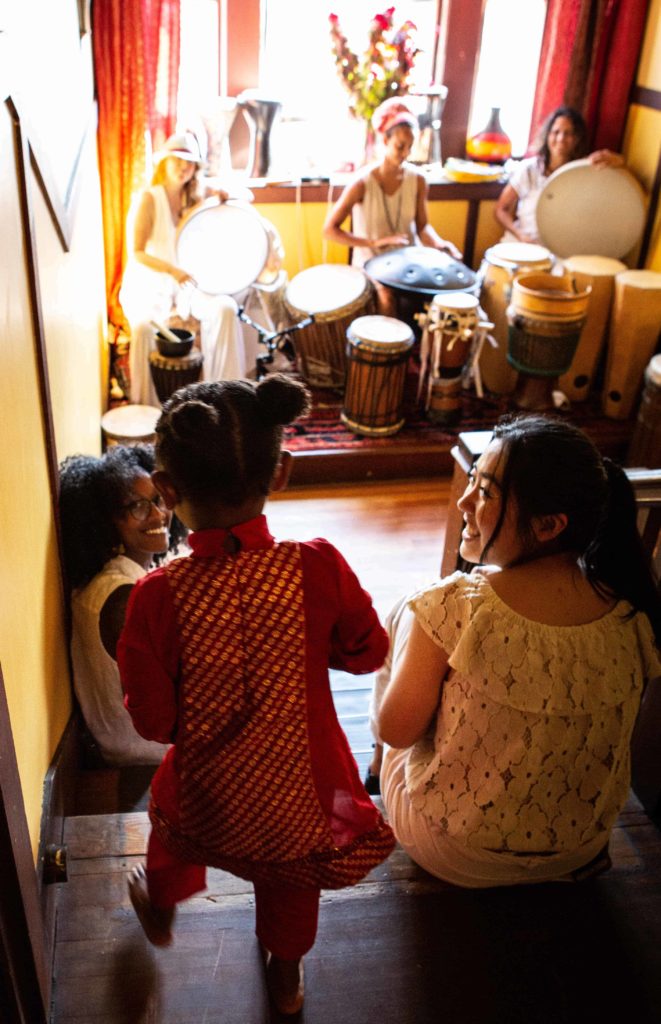
Krista Speroni, Amanda Turk and Carolyn Koebel perform on percussion in Rites of Passage.
Now, after the full sprint of the 10-day performance, she is still asking that question, and she has plans to keep the artists in contact — a book, a film, podcasts, a digital museum or installation, to share their rooms and thoughts with a global community, and give women anywhere the spark to create their own, even in one room or three.
She curated eight rooms here, in the end. It was more than she had meant to, she said, but in the pandemic the artists often had to adapt, and she filled in wherever she needed to. She appeared in one room near the beginning, in Sustenance.
In a time of intense activity, she said, in a week of 20-hour days, when they were all immersed in such hard work, physically and mentally and emotionally, it mattered to her that the house should have a place to rest.
“I made that room for my ancestors in Southern India,” she said, “and for mothering and rest, for all of us. We need to know how to come home.”

